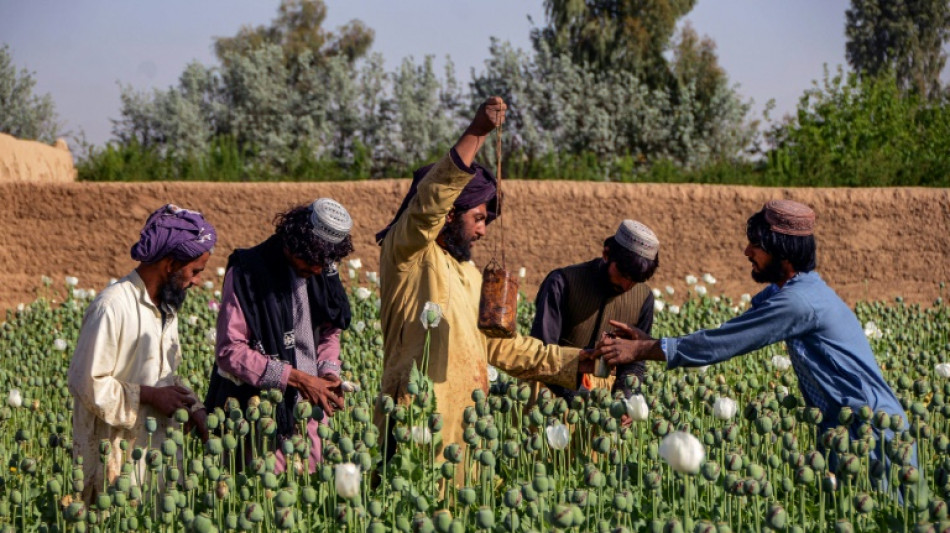

Taliban chief orders ban on poppy cultivation in Afghanistan
The Taliban's supreme leader on Sunday ordered a ban on poppy cultivation in Afghanistan, warning that the hardline Islamist government would crack down on farmers planting the crop.
Afghanistan is the world's biggest producer of poppies, the source of sap that is refined into heroin, and in recent years its production and exports have only boomed.
"All Afghans are informed that from now on cultivation of poppy has been strictly prohibited across the country," said a decree issued by Supreme Leader Hibatullah Akhundzada.
The decree was read out by government spokesman Zabihullah Mujahid at a gathering of reporters, foreign diplomats and Taliban officials.
"If anyone violates the decree the crop will be destroyed immediately and the violator will be treated according to the sharia law," it added.
It is not the first time the fundamentalist group has vowed to outlaw the trade. Production was banned in 2000, just before the group was overthrown by US-led forces in the wake of the September 11 attacks.
During their 20-year insurgency against foreign forces, the Taliban heavily taxed farmers cultivating the crop in areas under their control.
It became a key resource for the group to generate funds.
The United States and NATO forces tried to curb poppy cultivation during their two decades in Afghanistan by paying farmers to grow alternative crops such as wheat or saffron.
But their attempts were thwarted by the Taliban who controlled the main poppy-growing regions and derived hundreds of millions of dollars from the trade, experts say.
Deputy Prime Minister Abdul Salam Hanafi rejected claims the Taliban helped fuel poppy cultivation during their insurgency.
"How come it was exported all over the world when they (US-led forces) had full control over Afghanistan," Hanafi said Sunday.
Afghan media reports say production has increased in two southern provinces, Kandahar and Helmand, since the Taliban seized power in August, although data is not available.
Afghanistan has a near monopoly on opium and heroin, accounting for 80 to 90 percent of global output, according to the United Nations Office on Drugs and Crime.
The amount of land planted with poppies hit a record high in 2017 and has averaged around 250,000 hectares in recent years, roughly four times the level of the mid-1990s, UN figures show.
A.Maggiacomo--LDdC



